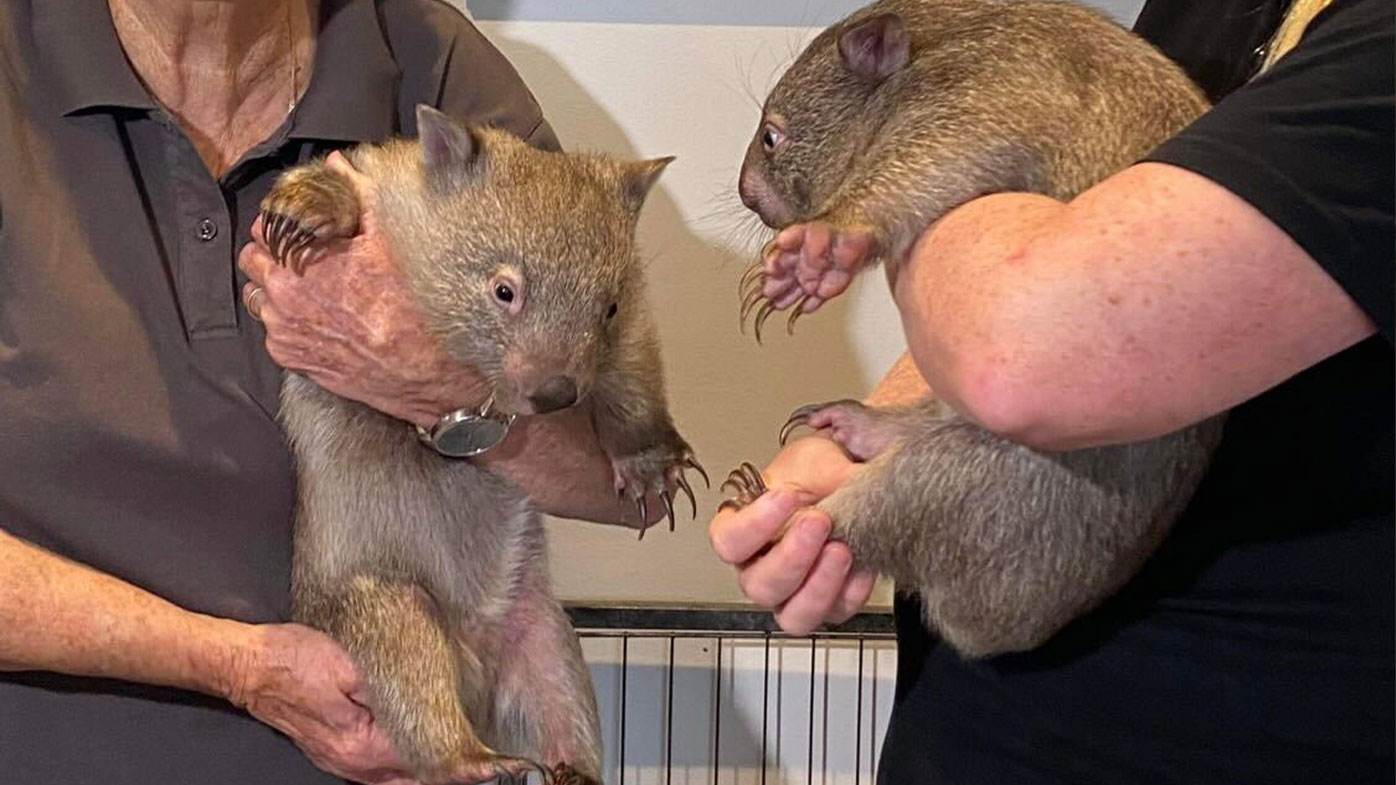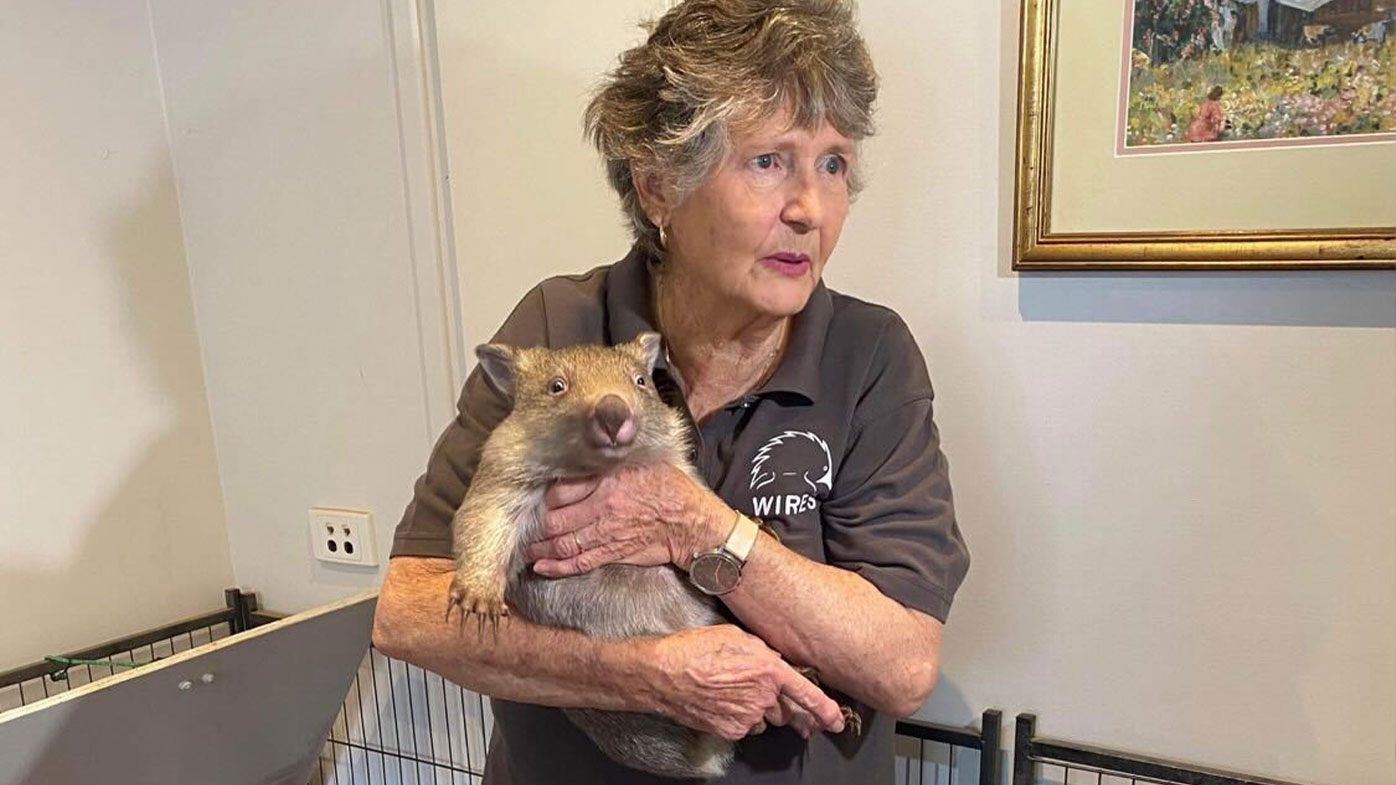When Kylie Wood first noticed a little wombat wandering around her property late last year, she knew something was wrong.
"We spotted him a few times fairly close to the house and we could see he was in a really bad way, so we were a bit worried about it," Ms Wood said.
Covered in scabs and struggling to see or hear, Ms Wood soon realised the wombat was suffering from mange.
READ MORE: Russia seizes control of Chernobyl

Just a few months later, the same wombat spotted frolicking across her property looking happier and healthier than ever.
And it's thanks to a very simple contraption developed by the team at WIRES Illawarra on the NSW South Coast.
It may look small, but it's making a big difference in helping tackle the growing issue of mange which now impacts upward of ten per cent of the wombat population across New South Wales.
"We install this flap, the wombat comes out at night, there's a solution that treats the mites in there, as it comes out it tips on his back," WIRES Rebecca Daly said.
"It's really hard to come across a wombat population that doesn't have some impact by mange and over time this will get worse unless we're able to intervene and help," Ms Daly said.
"It's a terrible affliction, its very painful for the wombats and it is an inevitable death if they're not treated."
READ MORE: One of our largest construction companies plunged into administration

The team at WIRES Illawarra is now working alongside property owners to help identify and treat the life-threatening disease.
For Ms Wood, whose property is home to several wombat families, it's a solution she didn't think was possible.
"We called WIRES thinking we'd have to get him euthanised," she said.
"We've now got a really nice healthy population of wombats down here … It's horrible to see them sick and suffering so yeah, it's a really good outcome."
READ MORE: Coffs Harbour man wins $60m in Powerball, plans to buy 'red sports car'

For these baby wombats, rescued from the side of the road after their mum was hit by a car, having a mange-free habitat to return to will be key for their survival.
"The numbers are declining, they really are and in the not-too-distant future we're going to have a lot of our animals which are extinct," Ms Daly said.
With wombat numbers dwindling across Australia the team say they hope the program can be adopted by other areas across the state and the country.
from 9News https://ift.tt/cB1X45H
via IFTTT
Comments
Post a Comment